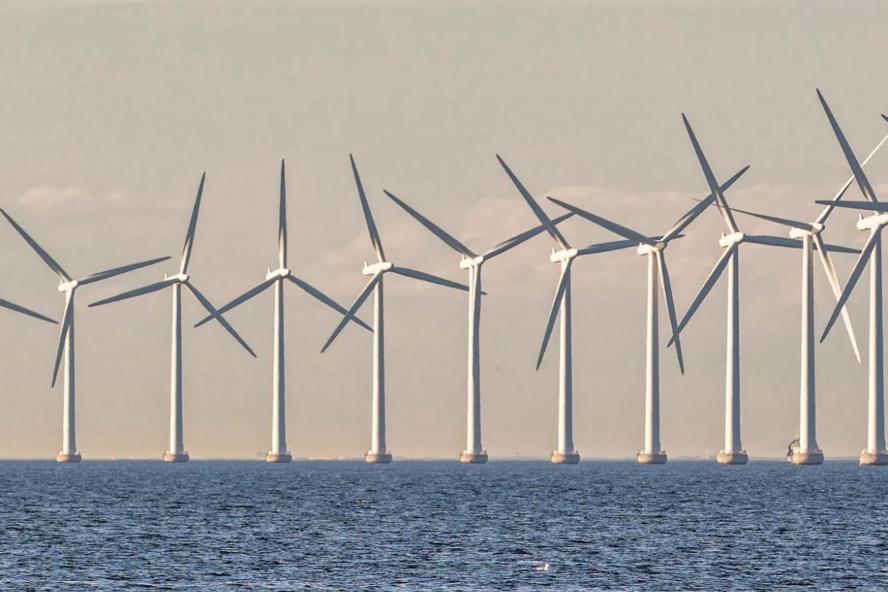Offshore Wind Energy Engineering
Spring: Sep 15
Summer: n/a
Hybrid
Part-time
Overview
Students in the Offshore Wind Energy Engineering master's program receive world-class training in wind policy, technical applications, and project management to prepare them for jobs in global industry, academia, and the public sector.
The program is offered through the Department of Civil and Environmental Engineering.
Scholarships Available
Some School of Engineering master's and certificate programs offer scholarships to qualified students. To receive full consideration, be sure to complete your application before the submission deadline. Contact the Office of Graduate Admissions at gradadmissions@tufts.edu for more information.
Program Highlights
At Tufts, you'll earn a student-centered education at a top-notch research university, with small classes and cutting-edge, interdisciplinary research led by innovative faculty who are here to help you succeed. Common research areas include:
- Infrastructure and transmission
- Site characterization and permitting
- Foundation design and monitoring
A full-time student can complete the 10 course graduate program option in one year but three semesters are recommended, and part-time study is available.
Graduate Cooperative Education (Co-Op) Program
The School of Engineering's Graduate Cooperative Education (Co-Op) Program provides students with the opportunity to apply the theoretical principles they have learned in their coursework to real-world engineering projects. Gain up to six months of full-time work experience, build your resume, and develop a competitive advantage for post-graduation employment. Learn more about the Co-Op Program.
Program Outcomes
Offshore wind energy plays a critical role in the world's transition to an electricity-based, clean energy economy. Standing at the intersection of infrastructure, manufacturing, and ocean science, offshore wind engineers work effectively with a wide range of partners to deliver technical excellence in the context of evolving markets, policies, and regulations.
As the wind energy industry continues to rapidly grow, your career possibilities as an offshore wind energy engineer will grow with it. Renewable energy is a key piece of the "green economy" puzzle—and wind power (which provides thousands of jobs in the United States every year) is one of the fastest growing sectors in renewable energy.
Our faculty offer perspectives rooted in research and industry experience, so you'll graduate from the program with the skills needed to make an impact in the field.
Application Requirements
Admission into the Department generally requires course credits in science (e.g. biology, chemistry, physics), mathematics (through differential equations), and engineering sciences (fluid mechanics, statics). Please note that students lacking one or more of these undergraduate preparations may be admitted on the condition that they complete the necessary coursework during their first year at Tufts.
Credits resulting from the successful completion (i.e., a grade of B or better) of conditional coursework are required to obtain a degree but may not be used to satisfy graduate course requirements within the degree program.
- Application Fee
- Resume/CV
- Personal Statement
- Transcripts
- Three letters of recommendation
- Official TOEFL, IELTS, or Duolingo test scores (if applicable)
- GRE General Test scores are not required
- Portfolio (optional)
Tuition & Financial Aid
At Tufts University, we believe every qualified applicant deserves the opportunity to pursue graduate study. We are dedicated to helping you understand your financial options and to ensuring that graduate education at Tufts is both accessible and within reach.
Tuition costs for this graduate program are billed at a per credit rate:
| Estimated Tuition for MS Program | |
|---|---|
| Tuition* | $1,799 per credit |
| Total Credits Required | 30 |
| Enrollment Status | Full-Time: 3-4 courses per semester (9-12 credits) Part-Time: 1-2 courses per semester (3-6 credits) |
| Estimated Tuition per Semester | Full-Time: $16,191 - $21,588 per semester (9-12 credits) Part-Time: $5,397 - $10,794 per semester (3-6 credits) |
| Estimated Total Tuition* | $53,970 |
*Estimated based on 2025-2026 tuition rates. Rates are subject to change each academic year. For further information about the full cost of attendance, including additional fees and estimated indirect costs (housing, transportation, etc.), please visit Student Financial Services.
The Tufts University School of Engineering offers partial, merit-based tuition scholarships for the majority of our graduate and certificate programs. All applicants are automatically considered for these awards as part of our holistic admissions review process—no separate scholarship application or additional materials are required.
Additional funding opportunities may include Tufts Double Jumbo Scholarships for Tufts graduates, Bridge Program Scholarships for students and alumni from select partner institutions, and veteran and military education benefits for eligible service members and their dependents, including participation in the Yellow Ribbon Program.
To further support your investment in a Tufts graduate education, a range of financing options are available, including federal and private student loans. For more details, please visit our Graduate Financial Aid page.
Career Outcomes

Average Salary: $100K+
Projected Job Growth (2022-2032): 6%
*Sources: Average salary and projected job growth statistics are from the U.S. Bureau of Labor Statistics Occupational Outlook Handbook.
Faculty

Laurie Gaskins Baise

Laurie Gaskins Baise
Research/Areas of Interest: geotechnical earthquake engineering, seismic hazard mapping, natural hazards

Eric Hines

Eric Hines
Research/Areas of Interest: Offshore Wind Energy Structural Design Earthquake Engineering

John Germaine

John Germaine
Research/Areas of Interest: geotechnical, laboratory testing, automation, soil behavior, physical properties, mechanical properties, material science

Daniel Kuchma

Daniel Kuchma
Research/Areas of Interest: design, behavior, and modeling of concrete structures

Jonathan Lamontagne

Jonathan Lamontagne
Research/Areas of Interest: • Hydrologic Extremes • Water Resources in a Changing World • Energy Systems Modeling • Robust Adaptive Planning

Babak Moaveni

Babak Moaveni
Research/Areas of Interest: Probabilistic system identification of structures, signal processing, Bayesian inference, model updating, structural dynamics, earthquake engineering, uncertainty quantification, verification and validation of computational models.

Masoud Sanayei

Masoud Sanayei
Research/Areas of Interest: Bridge structural health monitoring, building train-induced vibrations, nondestructive testing of full-scale structures, fatigue life prediction of structures with nonproportional multi-axial loading.